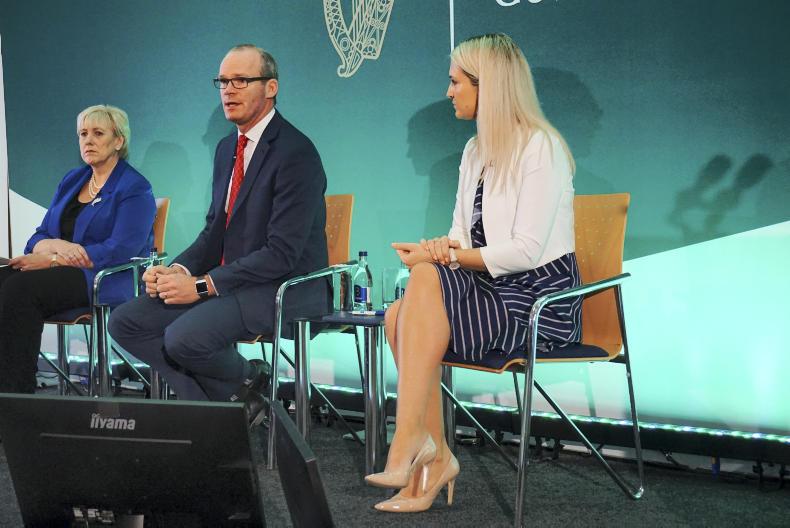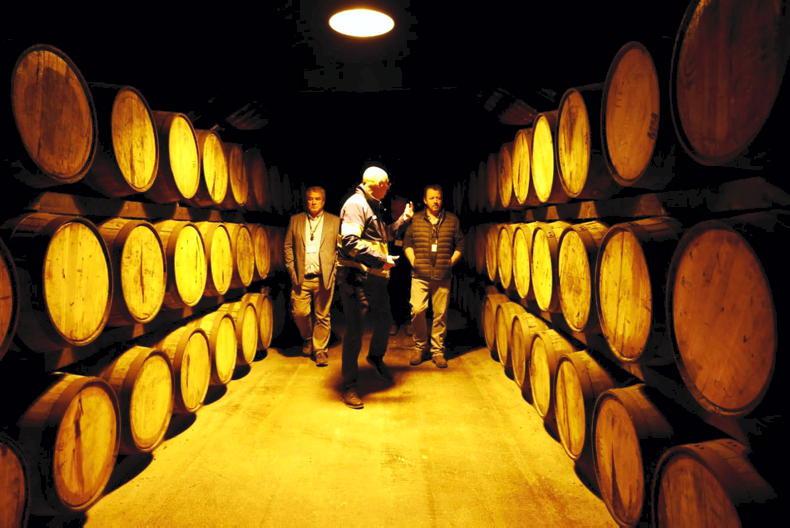The Government’s “Getting ready for Brexit” series of meetings arrived in Monaghan on Friday, with Tánaiste Simon Coveney joined by Minister Heather Humphreys Minister for Business, Enterprise and Innovation and Minister Helen Mc Entee, Minister of State for European Affairs. This is the third in the series of these roadshows. The previous two were in Galway and Cork and the final event will take place in the Convention Centre in Dublin next week.
Huge interest
The fact that the Dublin event has been relocated to the Convention Centre highlights the crodws these events are attracting, with over 400 people attending the Monaghan event.
The format for the event was a scene-setting discussion and Brexit update by the political representatives, followed by sector-specific events in workshop format.
The agri-food workshop was hosted by Enterprise Ireland, Bord Bia and Bord Iascaigh Mhara.
Update on negotiations
There were no surprises in the contributions from the Tánaiste nor his ministerial colleagues. The Tánaiste gave the audience an update on the Brexit negotiations and referred to the chief negotiator's comment that 90% of the withdrawal deal was already agreed.
He also pointed out that other difficult issues such as Cyprus and Gibraltar have been solved and that a year ago, many in the House of Commons said that the UK wouldn’t be making a payment to leave the EU but that is now also agreed.
He did concede that nothing would be as good for trade post-Brexit as what exists at present with Ireland and the UK both in the EU.
Business response
Minister Humphreys encouraged businesses to look at where their risks are and diversify markets where possible.
She encouraged business to avail of Enterprise Ireland’s market discovery fund to seek out and develop new markets. She also referenced the new-long term loan that she would be rolling out with the Minister for Agriculture in January as a means of giving assistance to primary producers and 40% of that fund will be earmarked for the agri-food sector.
She recognised that the greatest impact of a hard or no-deal Brexit would be felt in the agri-food sector and helping them in any way they can to prepare for the worst-case outcome. Capital
When pressed on how the loan fund would benefit farmers, the Minister explained that it would cover capital expenditure but farmers will have to come forward with the proposals on what they need.
She concluded her conversation with the Irish Farmers Journal by expressing confidence that a deal would be concluded and that it was in everyone’s interest that it was.
Comment
It was evident from this event that all the forces of Government are mobilised to assist industry in confronting whatever lies ahead with Brexit. Events like this are an excellent opportunity to demonstrate the services that are available in Government departments and in the business discussion that concluded the event it was clear that successful companies made good use of the State’s services.
However, the core lines of the advice also served to demonstrate just how powerless the state agencies or indeed companies will be if the worst-case scenario arises with the UK leaving without a deal and trade has to take place on WTO terms.
Advice like scoring the impact and investing in innovation and diversification into new markets are what successful businesses do all the time and they are not just a response to a crisis like Brexit.
The only way that Irish agribusinesses and their farmer suppliers can cope with Brexit is if a trading relationship can be developed that replicates the present arrangement as closely as possible.










SHARING OPTIONS